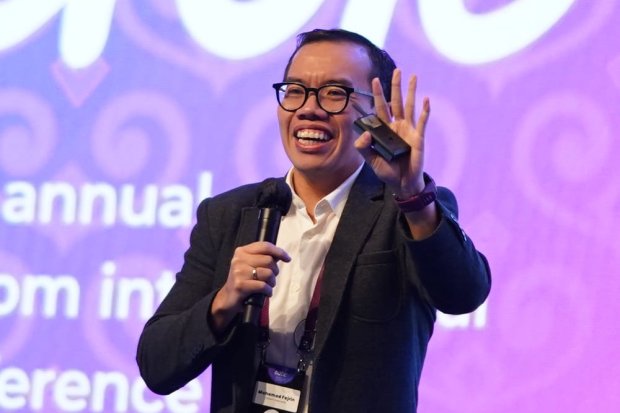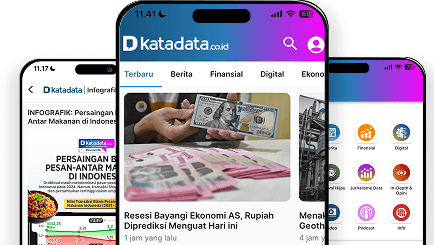Telkom Targets Web3 Innovation as a New Digital Business Line

PT Telkom Indonesia (Persero) Tbk. is eyeing Web3 as a new digital business line for the future. This state-owned telecommunications company has initiated various initiatives related to Web3 technology innovation.
During the Bali Annual Telkom International Conference (Batic 2023) in Nusa Dua, Bali, on Thursday (7/9), Telkom's Director of Digital Business, Fajrin Rasyid, stated that Web3 represents the third generation of World Wide Web innovation.
On this platform, not only can individuals access and interact with fellow users, but they can also create works that become their property.
Web3 offers a range of features, such as decentralization, trustlessness, permissions, AI and Machine Learning, as well as connectivity and ubiquity.
This innovation is made possible by various cutting-edge technologies like blockchain, smart contracts, and digital assets.
"Web 3 offers numerous benefits, one of which is cost reduction for customers. In theory, transactions on this platform will be more economical," he stated during the session titled "Web3's Role in Driving Digital Transformation in the Indo-Pacific."
In his presentation, other benefits of Web3 were highlighted, including enhanced customer security and privacy, promotion of business transparency, and the potential to bridge the physical and digital worlds.
"Web3 is much safer than Web2 and Web1," he emphasized.
So far, Web3 applications have been evident in various innovations, such as crypto assets, the metaverse, decentralized finance, decentralized identity, and non-fungible tokens.
Telkom's Initiatives
Telkom is striving to implement Web3 in various use cases. For instance, MetaNesia is a metaverse platform accessible to anyone, whether through laptops or Android and iOS smartphones.
Fajrin added that MetaNesia has collaborated with several entities, including Bank Mandiri, Bio Farma, and Honda.
"We have also recently launched a virtual non-business platform called Masjid Istiqlal. There, everyone can view the architecture of Masjid Istiqlal virtually," he mentioned.
Furthermore, Telkom plans to develop blockchain technology for monitoring supply chains in business processes, as exemplified in the case of halal certification.
In the implementation of halal certification, blockchain technology enables the tracking of the processes involved in obtaining halal certification for a product or food brand. To achieve this, Telkom is collaborating with various government institutions.
"We cannot disclose further details at this stage, but the potential is significant," he stated.
Blockchain technology can also be applied in other sectors, such as corporate storage management or product shipments.
Telkom is optimistic that Web3 will become a new digital business line in the future. In this context, the company will serve as an enabler for other businesses by offering various digital solutions.
"Telcos play a role as technology partners, not only in the blockchain field but also in many other areas. So, we do offer technology and solutions tailored to our clients' needs," he explained.
However, capitalizing on the Web3 world is not without challenges. Companies must exercise caution when investing in unproven technologies that have yet to demonstrate tangible impacts. Therefore, allocating company resources to new innovations becomes crucial.
According to Fajrin, regulatory matters also need to be addressed in collaboration with the government. Additionally, the issue of digital talent plays a critical role in transitioning to the Web3 era.
"Hence, we engage in numerous partnerships with universities and relevant parties for talent development," he noted.





